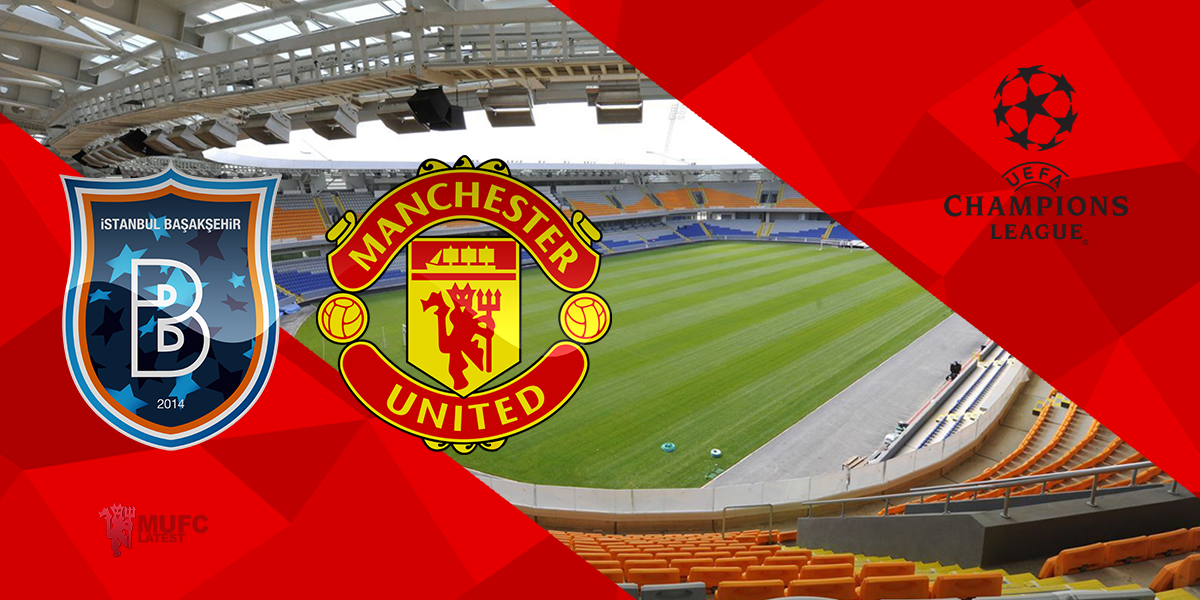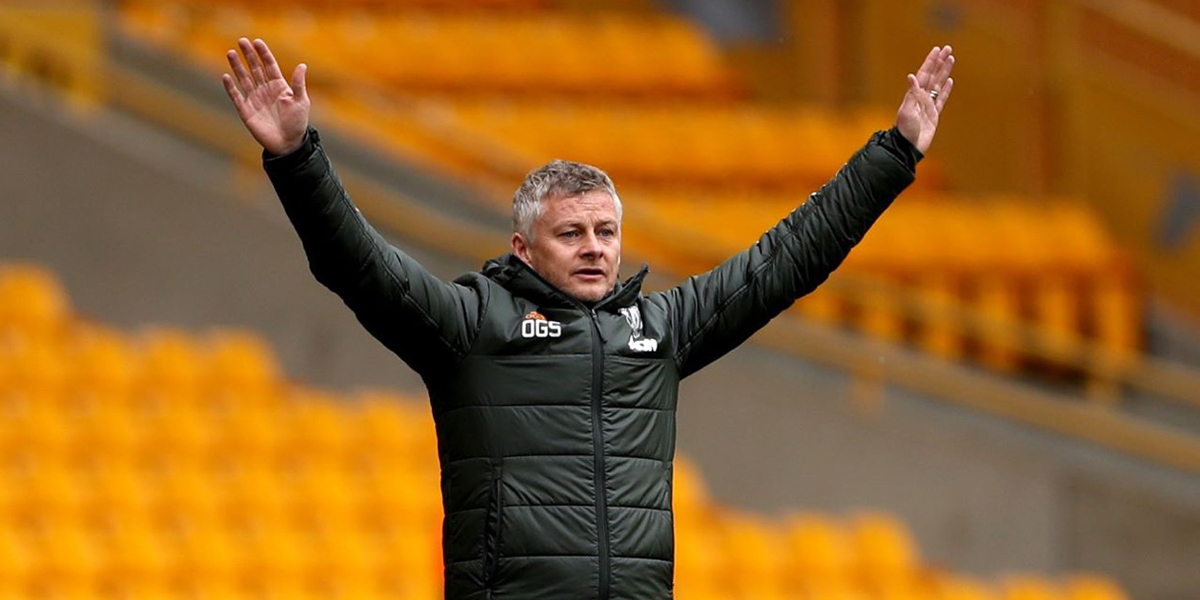
Ole Gunnar Solskjaer joined Manchester United on the 26 July 1996 from Norwegian side Molde for just £1.5 million, just 10% of the £15 million fee that United’s main target, Alan Shearer joined Newcastle United for, which at the time was a world record transfer. Solskjaer was a relatively unknown striker and was considered a gamble at that time, especially when the rumours were that Shearer was the target, coming off the back of a largely successful UEFA Euro 1996 tournament, where he won the Golden Boot after scoring five goals for England, who saw yet more hurt 30 years after lifting the World Cup at Wembley, beaten on penalties at the hands of Germany, who went on to win the tournament that summer.
Solskjaer, just 23 at the time he signed for United, was expected to be the backup striker for Eric Cantona and Andy Cole, but almost instantly became a first team player that would ultimately prove to become one of the bargain signings in the Premier League that summer. It really is good when a plan works – but they don’t tend to more often, which is a shame. The Norwegian spent five seasons with Clausengen as a younger player before moving to Molde during the 1995 season, playing a total of 54 times, scoring 41 goals for the club. Solskjaer was offered to both Everton and Manchester City for just £1.2 million with neither club willing to take the hit on the player, should hen not have been successful in England. I bet it still leaves a bitter taste now.
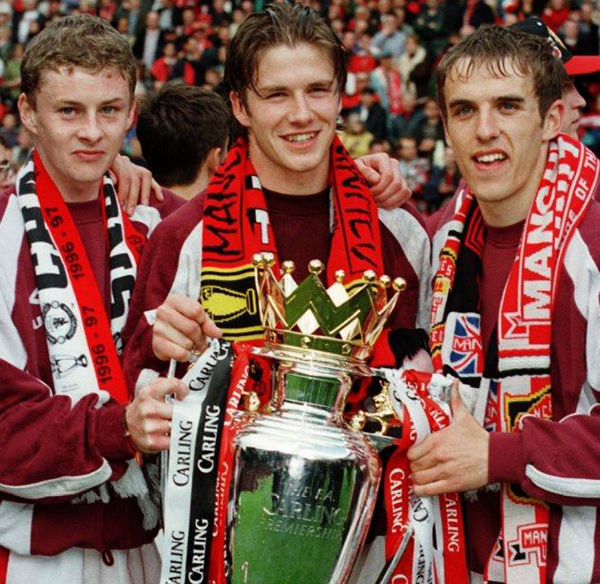
Solskjaer netted 19 goals in 46 appearances in his debut season at United. I bet City and Everton were annoyed at missing out on such a bargain but also German side Hamburg and Italian side Cagliari held interest in the player, which ceased after United’s bid. Fairytales don’t tend to happen all that often but there was something with Solskjaer and fairytales that was yet some time in the future. During his debut season, United won the FA Community Shield, also winning the Premier League for the fourth time, also winning the league the season before. In total, Solskjaer won the Premier League six times with United as a player, which was great to see. His playing career ended with a knee injury, for which he underwent minor surgery but he did not fully recover. Solskjaer scored 126 goals, assisting 50 times in 365 appearances for United during his career.
Added to his six Premier League titles, Solskjaer also won the FA Cup twice, two FA Community Shields, one UEFA Champions League and one Intercontinental Cup. It was a career that he would have been proud of and all for £1.5 million, which today would not get a club much – even youth players command bigger fees in this era of modern football. I would not have changed anything. At the time, Shearer signing for Newcastle hurt but it was understandable. Solskjaer was a gamble that paid off so many times. There were many matches in which he could not have been played off the park. His four goals against Nottingham Forest on the 6 February 1999 was one to remember, despite him coming off the bench in the 71st minute – scoring his first goal just nine minutes later. He scored another four goals against Everton on the 4 December 1999, starting that match.
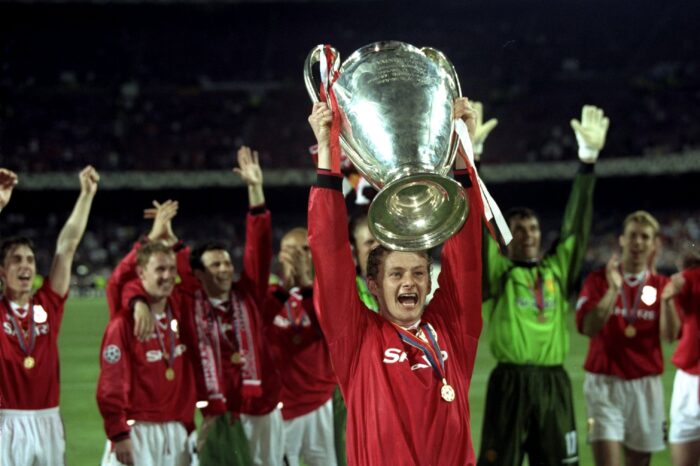
One of the biggest moments of Solskjaer’s career at United was winning the UEFA Champions League during the 1998/99 season, the season that United became the first English could to win the treble – the Premier League title, the FA Cup and the Champions League. United entered in the second qualifying round that season, beating ŁKS Łódź and coming second in a group which contained Bayern Munich, Barcelona and Brøndby – coming second. United then beat Inter Milan and Juventus before meeting Bayern Munich in the final in Barcelona. United conceded in the sixth minute through Mario Basler and waited until injury time to get involved with Teddy Sheringham equalising and Solskjaer scoring the winner. Manchester United had reached the promised land. Betway selected their top ten Champions League moments, of which Solskjaer’s winner was one of them – check them out.
After Solskjaer’s career as a player was over, he managed United’s reserves, winning the Lancashire Senior Cup in the 2007/08 season, the Manchester Senior Cup in the 2008/09 season and both the Premier Reserve League North and the Premier Reserve League in the 2009/10 season. He also spent a lot of time under the guidance of Sir Alex Ferguson at that time, and prior – when he was recovering from knee surgery. This will have seen him learn the ropes, so to speak, which would guide him later in his career. Solskjaer soon returned to Molde, where he managed the club he left United for. He won the Tippeligaen in 2011 and 2012 – winning the first two top flight league titles for the club – they have since doubled that.
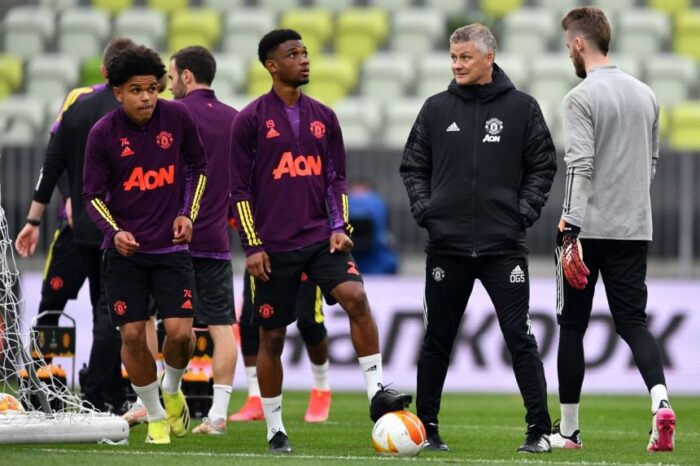
In January 2014, Solskjaer left Molde for Cardiff City, his first management job in England. It was not the best and it is something that many judge him for today. Cardiff were eventually relegated from the Premier League that season but Solskjaer departed a month into the clubs first season in the Championship, after a bad start to the season. He returned to Molde where he stayed until be replaced Jose Mourinho as United’s interim manager in December 2018. Many still don’t back the Norwegian and rate him as the guy that scored a tap in at the Champions League final in 1999, completely eradicating what he had achieved as a player both before and after that. But these people did not experience him as a player, so why would they remember him?
Solskjaer’s side played some good football during the 2018/19 season, beating Paris Saint-Germain in the Champions League but falling foul to Barcelona. They finished sixth in the Premier League. The following season, 2019/20 would see another challenge, the coronavirus pandemic but United ended up finishing third in the Premier League, also reaching the Carabao Cup semi-final, the FA Cup semi-final and the UEFA Europa League semi-final. It was an improvement but there was still more to do for United and Solskjaer. During the 2020/21 season, United finished second in the Premier League, reaching the Carabao Cup semi-final and the FA Cup quarter final, reaching the Europa League final on a special day – the 26 May – the day Solskjaer scored that goal in Barcelona to win the Champions League.
Written by John Walker
Discover more from MUFCLatest.com
Subscribe to get the latest posts sent to your email.




